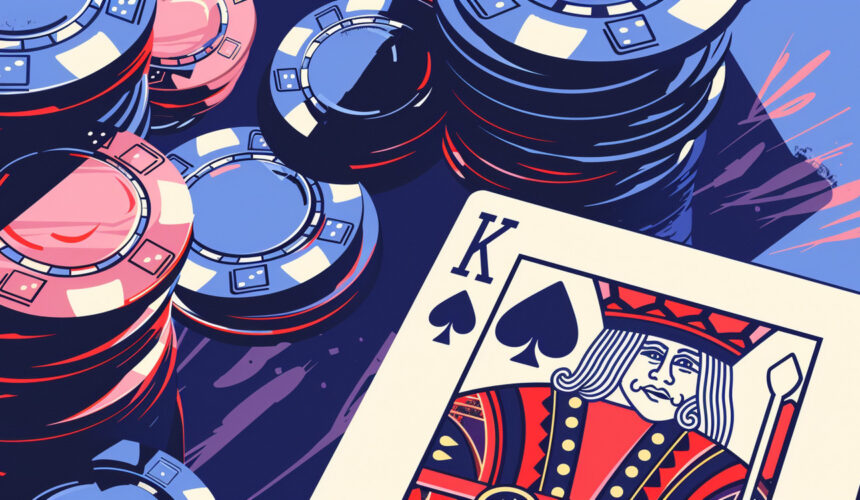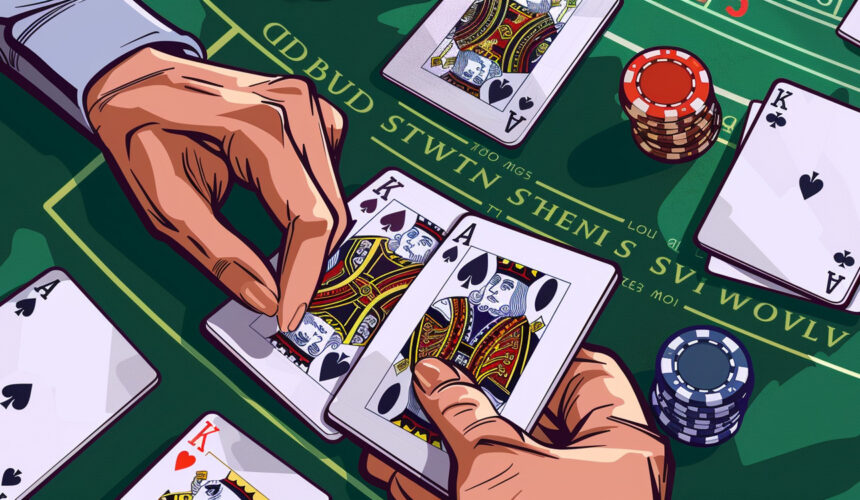Pool transcends mere ball-pocketing; it embodies a sophisticated interplay of physics and foresight. Mastering strategic elements elevates one’s game beyond basic shot-making, demanding astute planning and tactical adaptability. Defining Strategic Play in Pool Strategic play in pool extends far beyond simply aiming and shooting; it involves a comprehensive assessment of the table, anticipation of future ball positions, and exploitation of an opponent’s weaknesses. A strategic player meticulously plans a sequence of shots, considering not only the immediate pocketing of a ball but also the resulting position of the cue ball and other object balls. This requires a deep understanding of...
The Art of Card Counting: Uncovering Blackjack Secrets
Card counting represents a strategic technique employed in blackjack to ascertain whether the player or the dealer possesses a statistical advantage regarding the subsequent hand. Basic Principles of Blackjack Card Counting The fundamental principle involves monitoring the ratio of high cards (tens and aces) to low cards (two through six). This skill forms the basis of all card-counting methodologies employed in blackjack. Tracking the High-Low Ratio The cornerstone of card counting in blackjack lies in effectively tracking the high-low ratio within the deck or shoe. This ratio provides a crucial indication of the composition of the remaining cards, thereby influencing...
Exploring Famous Chess Matches That Changed History
The Immortal Game: Anderssen vs. Kieseritzky, 1851 This celebrated encounter, contested in 1851, exemplifies audacious attacking play. Anderssen’s sacrificial brilliance led to a stunning victory, capturing the imagination of chess enthusiasts and solidifying its place as a cornerstone of chess history and tactical ingenuity. “Game of the Century”: D. Byrne vs. Fischer, 1956 The appellation “Game of the Century” is bestowed upon the encounter between Donald Byrne and the prodigious Robert James Fischer, contested in 1956. At the tender age of thirteen, Fischer, exhibiting an extraordinary grasp of combinational chess, orchestrated a symphony of sacrifices, culminating in a checkmating attack...
Mastering the Bluffs: Key Strategies for Winning at Poker
Bluffing, a strategic art, involves betting to induce opponents with superior holdings to fold. Victory stems from hand strength or deceptive maneuvers. Timing is paramount. A well-chosen moment, exploiting perceived opponent weakness, amplifies bluff effectiveness, leading to pot acquisition. Mastering bluffs is essential in poker. Understanding when to bluff, detect, and respond to bluffs elevates gameplay for increased win probability. Defining the Bluff: Deception as a Strategic Tool In poker, a bluff is a calculated act of deception. It is executed when a player bets or raises with a hand that is unlikely to be the strongest, with the primary...
Blackjack Variations: Exploring Popular Game Formats
Blackjack, a card game of skill and chance, maintains its popularity through various iterations. From classic forms to modern adaptations, blackjack offers a diverse gaming experience. This exploration delves into several prominent variants found in casinos today. Core Blackjack Rules: A Foundation for Variation Before exploring the diverse landscape of blackjack variants, a firm understanding of the core rules is paramount. These fundamental principles serve as the bedrock upon which all variations are built, and comprehending them is essential for strategic gameplay in any format. The primary objective in standard blackjack is to acquire a hand total closer to 21...
Myth vs. Reality: Common Misconceptions About Blackjack
Blackjack, a staple in casinos, is rife with misunderstandings. This discourse aims to dissect prevailing fallacies, contrasting them with factual strategy. Common Myths About Blackjack Strategy Numerous misconceptions surround optimal blackjack play. These myths often lead to suboptimal decisions, increasing the house edge. Discerning fact is vital. Myth 1: Blackjack is Purely a Game of Luck A prevalent misconception posits that blackjack outcomes are solely governed by chance, akin to games like roulette or craps. This viewpoint suggests that players possess minimal influence over the hand’s trajectory, reducing the endeavor to a mere gamble. Proponents of this myth often dismiss...







